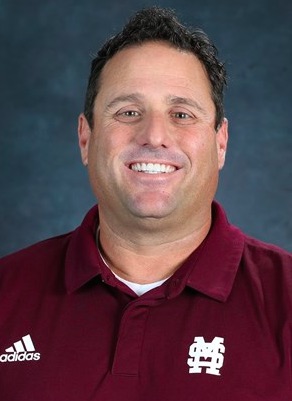Mississippi Today
College baseball is back, so whose turn is it in Mississippi?

College baseball is back, so whose turn is it in Mississippi?

In 2021, Mississippi State baseball won its own regional, then its own super regional and then its first-ever national championship, painting Omaha maroon and white in the process.
In 2022, Ole Miss sneaked into the NCAA Tournament as the last at-large team chosen, won the Coral Gables regional, white-washed Southern Miss in the Hattiesburg Super regional, before a full-scale Rebel invasion of Omaha. Mike Bianco’s Rebels won the national championship, sweeping Oklahoma in the championship series.

And so, you ask, what can Mississippi’s Boys of Spring do for a 2023 encore? Let’s put it this way: Expectations are sky-high.
Can Ole Miss, despite losing the legend named Tim Elko, repeat? Can Mississippi State bounce back from last year’s aberrational 26-30 finish, which included an unsightly 9-21 record in the Southeastern Conference? Can Southern Miss, which won 47 games and its own regional last year, take its turn in college baseball’s Omaha spotlight?
As we saw last season when Ole Miss vaulted from a 22-17 record (7-14 in the SEC) on May 1 to the national championship on June 26, just about anything is possible in college baseball. The team that lost to Southeast Missouri 13-3 on April 19 for its seventh defeat in nine games somehow won a national championship.
That’s why hope really does spring eternal in college baseball — especially in Mississippi. All three of Mississippi’s Division I baseball powers open at home this weekend. Ole Miss takes on Delaware for a three-game set that will feature three days of celebrating last year’s championship. Southern Miss plays host to a strong Liberty team, which has advanced to the NCAA Tournament three consecutive years. And Mississippi State hosts VMI (16-40 a year ago) from the Southern Conference.
Let’s take a brief look at all three.
Ole Miss
If you are looking for reasons why Ole Miss won’t repeat, look no further than these: Elko, Kevin Graham and Justin Bench. All three were uber-productive last season. All three were leaders. All three are gone. Elko led the national champs in home runs (24), runs batted in (75 in 65 games) and slugging (.642). Graham hit .335 with 11 home runs and 51 RBI. Bench was Mr. Dependable, hitting .312 with 17 doubles and 42 RBI, while playing excellent defense wherever Mike Bianco needed him. That’s an awful lot to replace. The Rebels also lost their No. 1 starter Dylan DeLucia and closer Brandon Johnson.

But if you are looking for reason not to write these Rebels off, there are plenty, starting with All-American shortstop Jacob Gonzalez and left-handed ace pitcher Hunter Elliot, who will lead what could be a deeper pitching staff than the one that won the national title.
Replacing Elko’s power largely will fall on Kemp Alderman’s broad shoulders. He hit 11 dingers last year and just might double that this year. Gonzalez also will look to increase his total of 18 homers a year ago.
Newcomers to watch: Tulane transfer outfielder Ethan Groff, who hit .404 last season, can steal a base and will likely hit at the top of the Rebel lineup; Northwestern first baseman Anthony Calarco (.325, 13 HRs 54 RBI); and Delgado Community College outfielder Ethan Lege (.399, 36 RBI). Pitching-wise, look out for freshman Grayson Saunier, who could well be this year’s Rebel version of Hunter Elliot.
Southern Miss
Enthusiasm for Southern Miss baseball is at an all-time high. The home season is sold out before the season even begins. Southern Miss starts the season ranked in all the college baseball polls, unusual for program that normally has to play its way into the Top 20. That’s what happens when you win 47 games, your own regional over LSU, and return nearly all of your everyday lineup. No telling where the Golden Eagles would be ranked if likely MLB first round pick Hurston Waldrep hadn’t transferred to Florida.
Pitching depth is a huge concern since the Eagles also lost senior starter Hunter Riggins, plus a school record five pitchers in the MLB draft, including much of a dependable bullpen. Pitching coach Christian Ostrander is often referred to as the Wizard of Oz and he will need to live up to that nickname with so much mound production gone from a year ago.

But head coach Scott Berry has plenty back, including All American right-handed starter Tanner Hall and the everyday players who hit 65 of the team’s 82 home runs a year ago. Hitting-wise, this will be a veteran team that already has experienced much success at the college level.
Pitching-wise, some young arms, including freshmen, must come through, including Mississippi’s Gatorade Player of the Year Nick Monistere of Northwest Rankin and Benton Academy’s JB Middleton, both hard throwers.
Newcomers to watch: Centerfielder Matthew Etzel, a highly touted transfer from Panola, a speedster who tore up the MLB Draft League last summer; left fielder/DH Tate Parker, who led Pearl River to the national junior college championship last spring; and second baseman Gabe Lacy, who hit .329 with 12 home runs and 63 RBI for Tennessee Tech last season.
Mississippi State
As if last year’s losing record wasn’t bad enough, Chris Lemonis’ Bulldogs are picked to finish last in the SEC West in the preseason SEC coaches poll. Color this observer shocked if they do. There’s just too much talent and too much tradition in Starkville for that to happen. But here’s the thing about the SEC West: Every team in the division feels that way.

First things first: State does have some key players still around from the 2021 National Champions. Catcher Luke Hancock, outfielder Kellum Clark and shortstop Lane Forsythe have been there. That’s a start. They know what it takes. The rest of the everyday lineup looks good as well, especially with first baseman Hunter Hines and his 16 home runs in the middle of the batting order.
Pitching is the big question mark. Some guys who didn’t get it done last season will have to improve drastically. Last season, the Bulldogs finished last in the SEC with an earned run average of 6.07, a full two runs per game higher than the national championship season. Moving out of the SEC West cellar begins with improving that stat. Memphis transfer Landon Gartman, 7-1 and All American Athletic Conference last season, surely will help in that regard.
Newcomers to watch: Gartman, Texas, transfer pitcher Aaron Nixon; incoming freshman centerfielder Dakota Jordan; New Orleans transfer second baseman Amani Larry; and Samford transfer left fielder Colton Ledbetter.
This article first appeared on Mississippi Today and is republished here under a Creative Commons license.
Mississippi Today
Mississippi River flooding Vicksburg, expected to crest on Monday
Warren County Emergency Management Director John Elfer said Friday floodwaters from the Mississippi River, which have reached homes in and around Vicksburg, will likely persist until early May. Elfer estimated there areabout 15 to 20 roads underwater in the area.
“We’re about half a foot (on the river gauge) from a major flood,” he said. “But we don’t think it’s going to be like in 2011, so we can kind of manage this.”
The National Weather projects the river to crest at 49.5 feet on Monday, making it the highest peak at the Vicksburg gauge since 2020. Elfer said some residents in north Vicksburg — including at the Ford Subdivision as well as near Chickasaw Road and Hutson Street — are having to take boats to get home, adding that those who live on the unprotected side of the levee are generally prepared for flooding.



“There are a few (inundated homes), but we’ve mitigated a lot of them,” he said. “Some of the structures have been torn down or raised. There are a few people that still live on the wet side of the levee, but they kind of know what to expect. So we’re not too concerned with that.”
The river first reached flood stage in the city — 43 feet — on April 14. State officials closed Highway 465, which connects the Eagle Lake community just north of Vicksburg to Highway 61, last Friday.

Elfer said the areas impacted are mostly residential and he didn’t believe any businesses have been affected, emphasizing that downtown Vicksburg is still safe for visitors. He said Warren County has worked with the U.S. Army Corps of Engineers and the Mississippi Emergency Management Agency to secure pumps and barriers.
“Everybody thus far has been very cooperative,” he said. “We continue to tell people stay out of the flood areas, don’t drive around barricades and don’t drive around road close signs. Not only is it illegal, it’s dangerous.”
NWS projects the river to stay at flood stage in Vicksburg until May 6. The river reached its record crest of 57.1 feet in 2011.




This article first appeared on Mississippi Today and is republished here under a Creative Commons Attribution-NoDerivatives 4.0 International License.![]()
Mississippi Today
With domestic violence law, victims ‘will be a number with a purpose,’ mother says
Joslin Napier. Carlos Collins. Bailey Mae Reed.
They are among Mississippi domestic violence homicide victims whose family members carried their photos as the governor signed a bill that will establish a board to study such deaths and how to prevent them.
Tara Gandy, who lost her daughter Napier in Waynesboro in 2022, said it’s a moment she plans to tell her 5-year-old grandson about when he is old enough. Napier’s presence, in spirit, at the bill signing can be another way for her grandson to feel proud of his mother.
“(The board) will allow for my daughter and those who have already lost their lives to domestic violence … to no longer be just a number,” Gandy said. “They will be a number with a purpose.”
Family members at the April 15 private bill signing included Ashla Hudson, whose son Collins, died last year in Jackson. Grandparents Mary and Charles Reed and brother Colby Kernell attended the event in honor of Bailey Mae Reed, who died in Oxford in 2023.
Joining them were staff and board members from the Mississippi Coalition Against Domestic Violence, the statewide group that supports shelters and advocated for the passage of Senate Bill 2886 to form a Domestic Violence Facility Review Board.
The law will go into effect July 1, and the coalition hopes to partner with elected officials who will make recommendations for members to serve on the board. The coalition wants to see appointees who have frontline experience with domestic violence survivors, said Luis Montgomery, public policy specialist for the coalition.
A spokesperson from Gov. Tate Reeves’ office did not respond to a request for comment Friday.
Establishment of the board would make Mississippi the 45th state to review domestic violence fatalities.
Montgomery has worked on passing a review board bill since December 2023. After an unsuccessful effort in 2024, the coalition worked to build support and educate people about the need for such a board.
In the recent legislative session, there were House and Senate versions of the bill that unanimously passed their respective chambers. Authors of the bills are from both political parties.
The review board is tasked with reviewing a variety of documents to learn about the lead up and circumstances in which people died in domestic violence-related fatalities, near fatalities and suicides – records that can include police records, court documents, medical records and more.
From each review, trends will emerge and that information can be used for the board to make recommendations to lawmakers about how to prevent domestic violence deaths.
“This is coming at a really great time because we can really get proactive,” Montgomery said.
Without a board and data collection, advocates say it is difficult to know how many people have died or been injured in domestic-violence related incidents.
A Mississippi Today analysis found at least 300 people, including victims, abusers and collateral victims, died from domestic violence between 2020 and 2024. That analysis came from reviewing local news stories, the Gun Violence Archive, the National Gun Violence Memorial, law enforcement reports and court documents.
Some recent cases the board could review are the deaths of Collins, Napier and Reed.
In court records, prosecutors wrote that Napier, 24, faced increased violence after ending a relationship with Chance Fabian Jones. She took action, including purchasing a firearm and filing for a protective order against Jones.
Jones’s trial is set for May 12 in Wayne County. His indictment for capital murder came on the first anniversary of her death, according to court records.
Collins, 25, worked as a nurse and was from Yazoo City. His ex-boyfriend Marcus Johnson has been indicted for capital murder and shooting into Collins’ apartment. Family members say Collins had filed several restraining orders against Johnson.
Johnson was denied bond and remains in jail. His trial is scheduled for July 28 in Hinds County.
He was a Jackson police officer for eight months in 2013. Johnson was separated from the department pending disciplinary action leading up to immediate termination, but he resigned before he was fired, Jackson police confirmed to local media.
Reed, 21, was born and raised in Michigan and moved to Water Valley to live with her grandparents and help care for her cousin, according to her obituary.
Kylan Jacques Phillips was charged with first degree murder for beating Reed, according to court records. In February, the court ordered him to undergo a mental evaluation to determine if he is competent to stand trial, according to court documents.
At the bill signing, Gandy said it was bittersweet and an honor to meet the families of other domestic violence homicide victims.
“We were there knowing we are not alone, we can travel this road together and hopefully find ways to prevent and bring more awareness about domestic violence,” she said.
This article first appeared on Mississippi Today and is republished here under a Creative Commons Attribution-NoDerivatives 4.0 International License.
Mississippi Today
Court to rule on DeSoto County Senate districts with special elections looming
A federal three-judge panel will rule in coming days on how political power in northwest Mississippi will be allocated in the state Senate and whether any incumbents in the DeSoto County area might have to campaign against each other in November special elections.
The panel, comprised of all George W. Bush-appointed judges, ordered state officials last week to, again, craft a new Senate map for the area in the suburbs of Memphis. The panel has held that none of the state’s prior maps gave Black voters a realistic chance to elect candidates of their choice.
The latest map proposed by the all-Republican State Board of Election Commissioners tweaked only four Senate districts in northwest Mississippi and does not pit any incumbent senators against each other.
The state’s proposal would keep the Senate districts currently held by Sen. Michael McLendon, a Republican from Hernando and Sen. Kevin Blackwell, a Republican from Southaven, in majority-white districts.
But it makes Sen. David Parker’s district a slightly majority-Black district. Parker, a white Republican from Olive Branch, would run in a district with a 50.1% black voting-age population, according to court documents.
The proposal also maintains the district held by Sen. Reginald Jackson, a Democrat from Marks, as a majority-Black district, although it reduces the Black voting age population from 61% to 53%.
Gov. Tate Reeves, Secretary of State Michael Watson, and Attorney General Lynn Fitch comprise the State Board of Election Commissioners. Reeves and Watson voted to approve the plan. But Watson, according to meeting documents, expressed a wish that the state had more time to consider different proposals.
Fitch did not attend the meeting, but Deputy Attorney General Whitney Lipscomb attended in her place. Lipscomb voted against the map, although it is unclear why. Fitch’s office declined to comment on why she voted against the map because it involves pending litigation.
The reason for redrawing the districts is that the state chapter of the NAACP and Black voters in the state sued Mississippi officials for drawing legislative districts in a way that dilutes Black voting power.
The plaintiffs, represented by the ACLU, are likely to object to the state’s newest proposal, and they have until April 29 to file an objection with the court
The plaintiffs have put forward two alternative proposals for the area in the event the judges rule against the state’s plans.
The first option would place McLendon and Blackwell in the same district, and the other would place McLendon and Jackson in the same district.
It is unclear when the panel of judges will issue a ruling on the state’s plan, but they will not issue a ruling until the plaintiffs file their remaining court documents next week.
While the November election is roughly six months away, changing legislative districts across counties and precincts is technical work, and local election officials need time to prepare for the races.
The judges have not yet ruled on the full elections calendar, but U.S. Fifth Circuit Court of Appeals Judge Leslie Southwick said at a hearing earlier this month that the panel was committed have the elections in November.
This article first appeared on Mississippi Today and is republished here under a Creative Commons Attribution-NoDerivatives 4.0 International License.
-

 News from the South - Florida News Feed6 days ago
News from the South - Florida News Feed6 days agoJim talks with Rep. Robert Andrade about his investigation into the Hope Florida Foundation
-

 News from the South - Arkansas News Feed7 days ago
News from the South - Arkansas News Feed7 days agoValerie Storm Tracker
-

 News from the South - Kentucky News Feed7 days ago
News from the South - Kentucky News Feed7 days agoU.S. Supreme Court pauses deportations under wartime law
-

 News from the South - Alabama News Feed4 days ago
News from the South - Alabama News Feed4 days agoPrayer Vigil Held for Ronald Dumas Jr., Family Continues to Pray for His Return | April 21, 2025 | N
-

 Mississippi Today5 days ago
Mississippi Today5 days ago‘Trainwreck on the horizon’: The costly pains of Mississippi’s small water and sewer systems
-

 News from the South - Texas News Feed5 days ago
News from the South - Texas News Feed5 days agoMeteorologist Chita Craft is tracking a Severe Thunderstorm Warning that's in effect now
-

 News from the South - Florida News Feed4 days ago
News from the South - Florida News Feed4 days agoTrump touts manufacturing while undercutting state efforts to help factories
-

 Mississippi Today7 days ago
Mississippi Today7 days agoOn this day in 1977, Alex Haley awarded Pulitzer for ‘Roots’














































